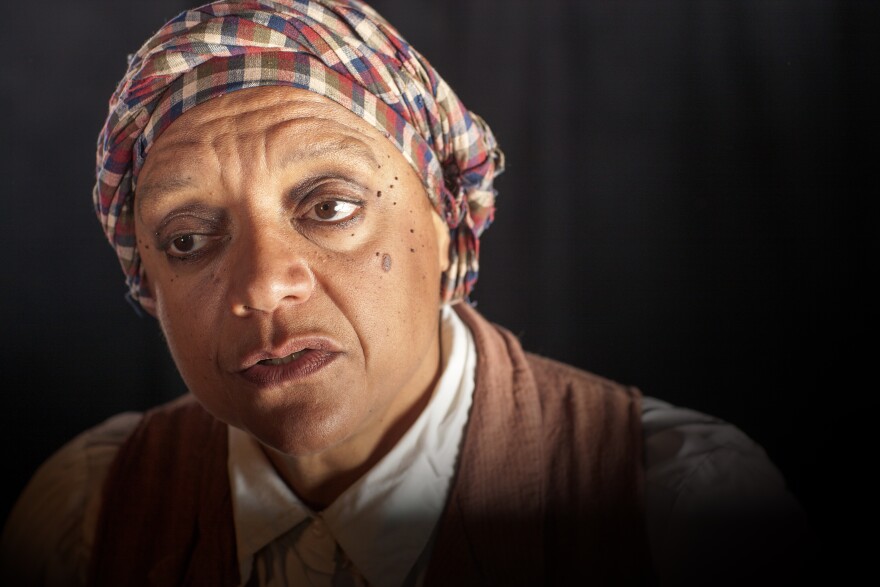Harriet Tubman is one of the most iconic figures of American history. She escaped from slavery in 1849, and then went on to become one of the most famous conductors on the Underground Railroad, guiding many more slaves to freedom. She served as a nurse and a scout for the Union Army during the Civil War, and later became an outspoken proponent of women's suffrage.
"She just was fearless, and trusting and clever," said living history scholar Becky Stone. "If she saw something that needed to be done, she did it."
Stone will bring Tubman's life and legacy to the main stage of the High Plains Chatauqua in Greeley on Monday, Aug. 5. This year's theme "Encore!" celebrates the last twenty years of bringing history to life. Other notable figures being featured this week include Mark Twain, Thomas Jefferson, Marie Curie, John James Audubon and Henry David Thoreau.
Interview Highlights
What did it mean to be a conductor on the Underground Railroad?
"It meant that she guided passengers. And she took great pride in never having lost a passenger in her eight years of running on the Underground Railroad. They trusted her to know which stations to go to. They would run at night, and as the night was drawing to a close, she needed to get them to a station or a safehouse. If she could not, then she had to hide them during the day. And sometimes she would go out during the day and find food or what was needed to keep them warm or safe. She always ran in the winter, because the nights were longer. It gave them more time to run."
After Tubman escaped in 1849, she went back multiple times to help guide other slaves to freedom. What drove her to do that?
"She states it very clearly, that she went back for her family. Sometimes brothers or nephews or nieces would say they were going to go, and then would essentially chicken out. It was a difficult decision to leave the security — if I dare say it — of what you know to go and risk your life, not knowing that you'll make it through to freedom, but to risk your life that way. And once she got her parents through, she did not go south anymore to run the Underground Railroad. She did go south during the Civil War, and served as a spy and a nurse for the Union Army in Buford, South Carolina."
In 2016, the U.S. Treasury Department announced a new design of the $20 bill featuring a portrait of Tubman on the front, set for release in 2020. Earlier this year, the current treasury secretary announced that it would be delayed. How do you think Tubman would respond to this?
"I think she would be modest and humble about being on the bill, and that she would be really angry about the fact that it was delayed, because she would see it as someone acting of fear or ignorance, instead of having the courage to put her on the paper bill."
What is Tubman's most powerful legacy today?
"I feel as though she was a woman who modeled courage and faith, and a lack of fear. And I feel as though we allow too much fear these days to dictate our behavior. If she saw something that was wrong, she interrupted it. She intervened. Even if they're baby steps, we need to follow her example of courage and trust in God."
High Plains Chatauqua is at Aims Community College in Greeley, Colorado from Aug. 5 to Aug. 9. Find the complete 2019 schedule of events here.







